How a CPAP Machine Stops Snoring Explained
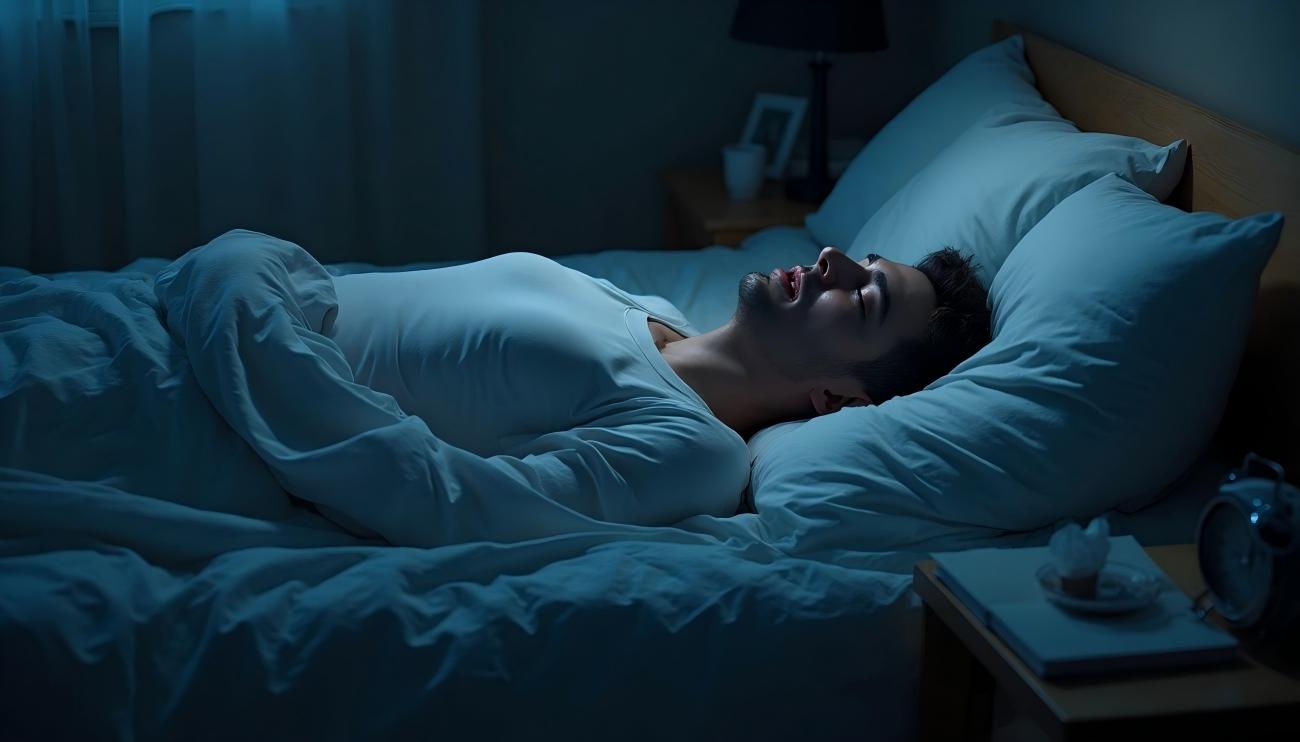
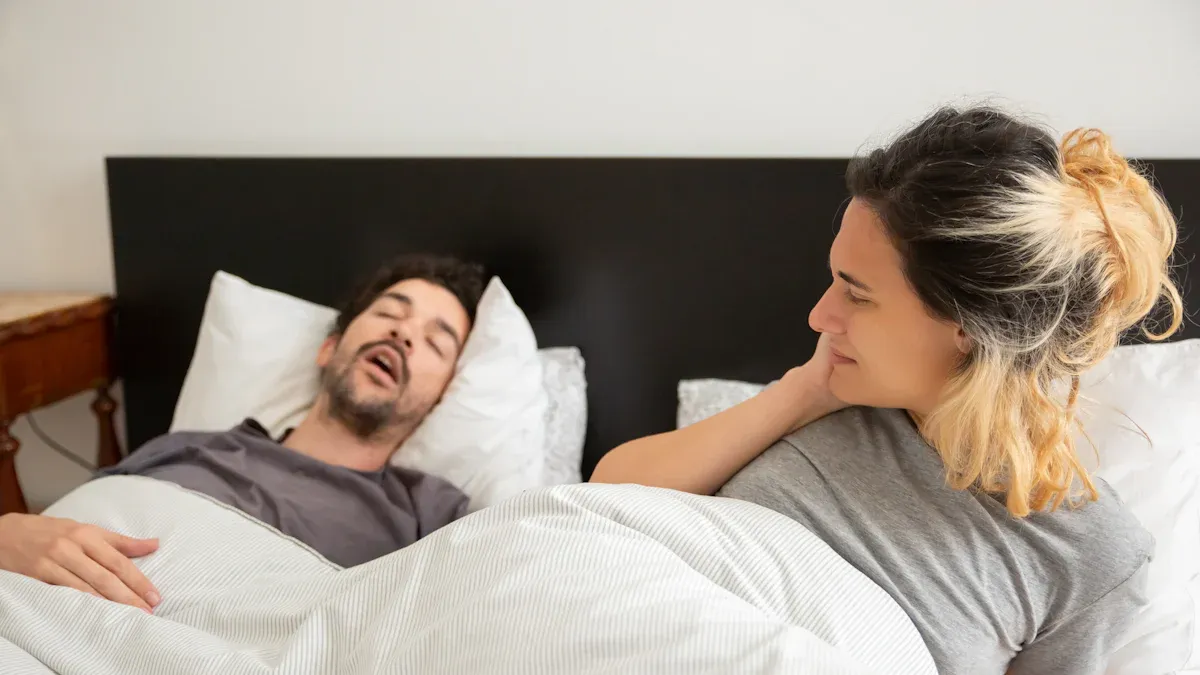
A CPAP machine is effective for people who want to know how does CPAP machine stop snoring. It works by blowing a steady stream of air that keeps your airway open throughout the night. This airflow prevents the soft tissue in your throat from vibrating, which is the main cause of snoring. Snoring occurs when air cannot move easily through your throat, causing the tissues to shake and create noise. Many adults experience snoring, with about 52.8% of American adults snoring regularly. For those with obstructive sleep apnea, the rate is even higher—up to 94%, as shown in the table below.
| Population Group | Prevalence of Snoring (%) |
|---|---|
| American adults | 52.8 |
| Patients with Obstructive Sleep Apnea (OSA) | Up to 94 |
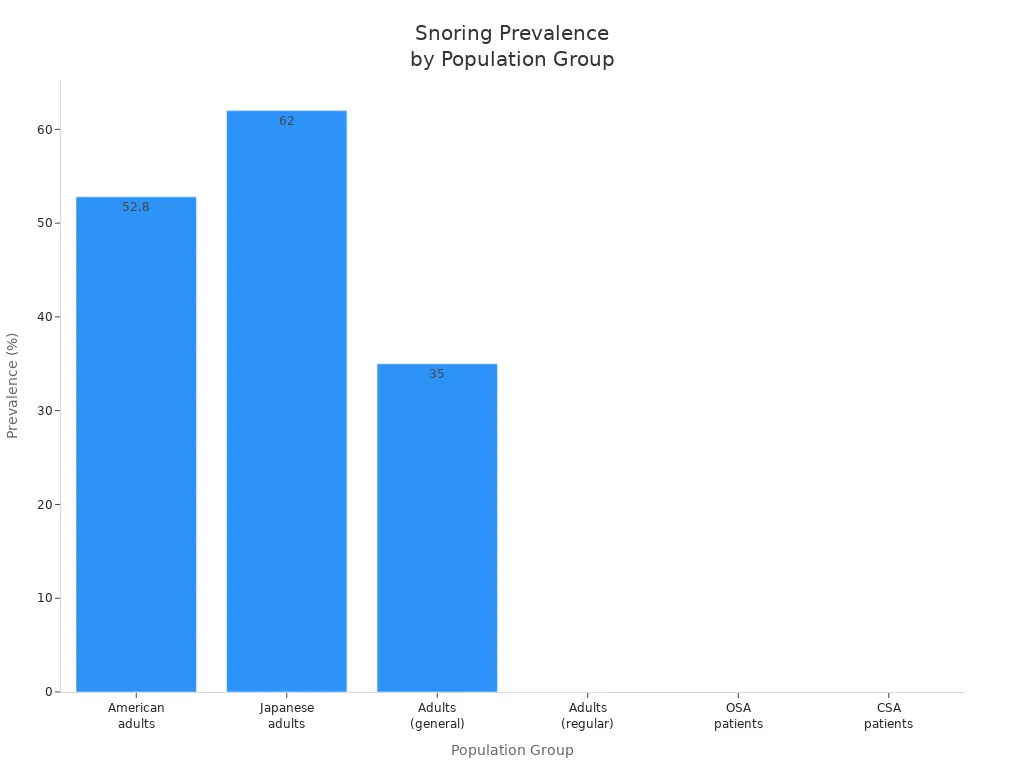
If you’re curious about how does CPAP machine stop snoring, the answer is simple: it addresses the root cause by keeping your airway open and preventing the tissue vibration that leads to snoring. Clinical studies have shown that using a CPAP machine can reduce snoring by up to 85%, even at low settings. So, if you want to know how does CPAP machine stop snoring, it’s by maintaining an open airway and stopping the noisy vibrations.
Key Takeaways
- A CPAP machine stops snoring by blowing steady air. This keeps your airway open and stops tissue from shaking.
- Snoring happens when your airway gets small or blocked. This makes soft tissues in your throat shake and make noise.
- CPAP works like a gentle brace. It holds your airway open with steady air pressure. This stops snoring and helps you breathe better.
- If you still snore with CPAP, check if your mask fits right. Also check the pressure settings, nasal stuffiness, and how you sleep. These things can cause problems.
- Changing your habits can help too. Losing weight, not drinking alcohol before bed, and sleeping on your side can help stop snoring with CPAP.
Why Snoring Happens
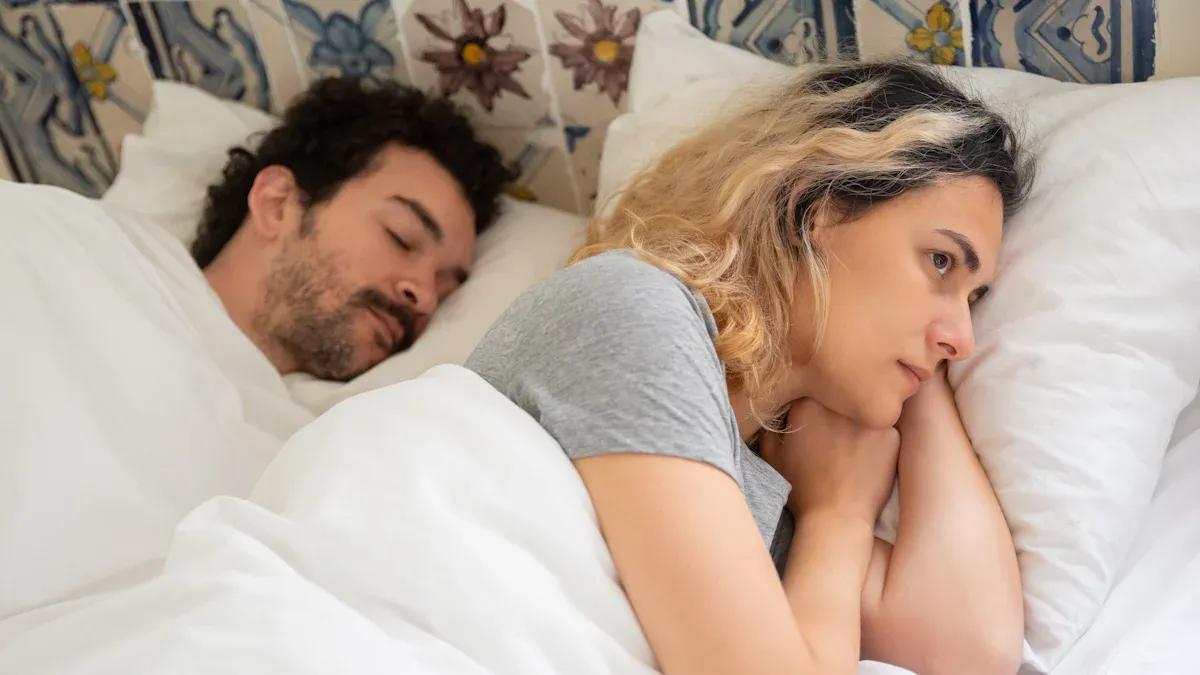
Airway Blockage
When you sleep, your airway can become blocked or narrowed. This blockage makes it harder for air to move freely in and out of your lungs. Many things can cause your airway to narrow. You might have nasal congestion from allergies or a cold. Enlarged tonsils or adenoids can also block the airway, especially in children. If you have a deviated septum, the wall inside your nose is crooked, which can make breathing difficult.
Sleeping on your back often lets your tongue and soft palate fall backward, which blocks the airway even more. If you carry extra weight, fatty tissue around your neck can press on your throat and make the airway smaller. Alcohol, sleep aids, and smoking relax the muscles in your throat or cause swelling, which increases the chance of blockage.
Here are some common reasons your airway might get blocked at night:
- Nasal congestion or allergies
- Enlarged tonsils or adenoids
- Deviated septum
- Poor muscle tone during sleep
- Extra weight around the neck
- Sleeping on your back
- Alcohol, sleep aids, or smoking
Anatomical studies show that when your airway gets blocked, the muscles that keep it open become less effective. Chronic mouth breathing can move your jaw and tongue in ways that make the airway even narrower. Blockage can happen at different places in your airway, and each spot can create a unique snoring sound.
Tissue Vibration
Snoring happens when air tries to squeeze through a narrowed airway. The airflow becomes turbulent and makes the soft tissues in your throat vibrate. These tissues include your soft palate, uvula, tongue base, and the walls of your throat. When these tissues shake, they create the sound you hear as snoring.
Acoustic studies show that most snoring sounds are low-frequency, like a deep rumble. The vibration can change depending on how much tissue is present and how relaxed your muscles are. If you have more tissue in your throat, like from swelling or extra fat, the snoring sound can get deeper and louder. When you fall asleep, your muscles relax, which makes it easier for the tissues to vibrate.
The main source of snoring is the fluttering of your soft palate and throat walls. As you sleep, the airway narrows, and the airflow causes these tissues to vibrate, producing the familiar snoring noise.
Snoring is not just a simple sound. It is a sign that your airway is struggling to stay open while you sleep. Understanding why snoring happens can help you find the best way to treat it.
How Does CPAP Machine Stop Snoring
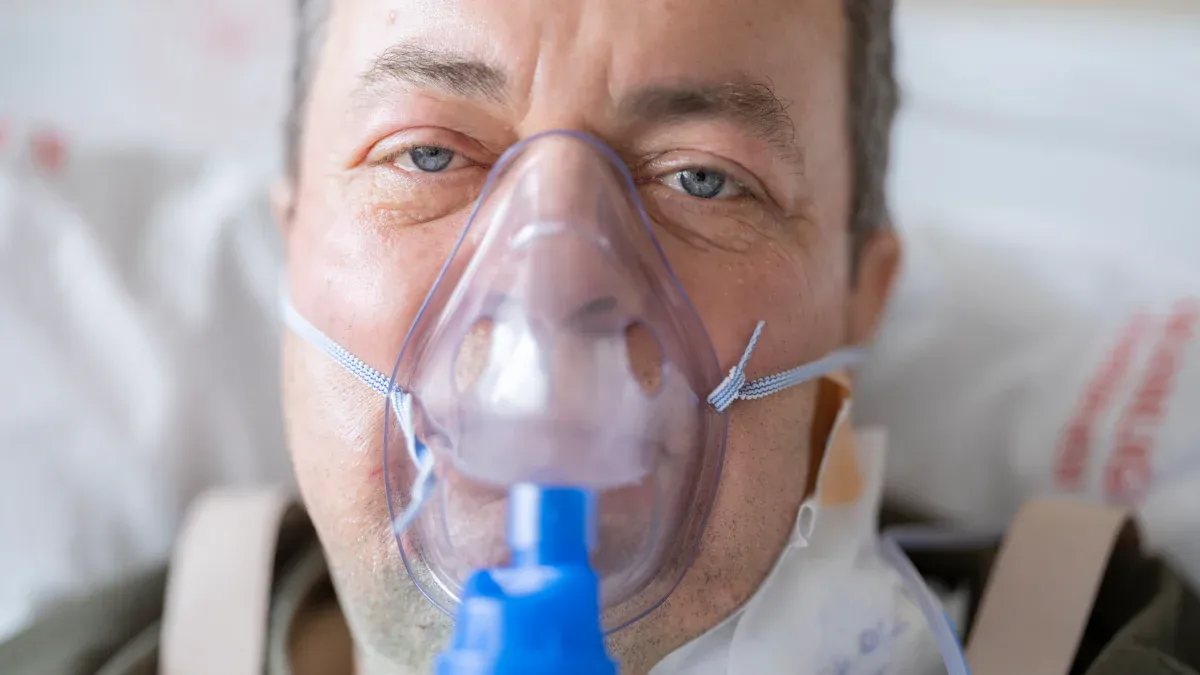
Continuous Air Pressure
A CPAP machine helps you stop snoring by giving you a steady stream of pressurized air while you sleep. This air comes from the room, passes through a filter, and then a motor pushes it into a tube. The tube connects to a mask that fits over your nose or both your nose and mouth. The mask forms a seal to keep the air from leaking out.
- The CPAP machine takes in room air and filters it.
- A motor pressurizes the filtered air.
- Pressurized air travels through a tube to your mask.
- The mask fits snugly over your nose or mouth to prevent leaks.
- The steady airflow keeps your tongue, uvula, and soft palate from blocking your airway.
This continuous air pressure keeps your airway open all night. When you wonder how does cpap machine stop snoring, the answer starts with this steady airflow. It stops your airway from closing, so you can breathe easily and quietly.
Scientific studies show that CPAP raises the pressure inside your airway just enough to keep it open, but not so much that it causes discomfort. This makes the therapy safe and effective for most people.
Preventing Collapse
When you sleep, the muscles in your throat relax. For many people, this causes the soft tissues in the back of the throat to collapse and block the airway. This blockage leads to snoring and, in some cases, sleep apnea. The CPAP machine acts like a splint for your airway. It uses air pressure to hold the airway open and prevent it from collapsing.
- CPAP creates a gentle pressure that pushes against any blockages.
- The airway stays open, so you do not stop breathing during sleep.
- This helps you avoid the drops in oxygen that can make you feel tired during the day.
Clinical trials show that CPAP improves symptoms like daytime sleepiness, mood, and memory. People who use CPAP often feel more alert and have better quality of life. If you ask how does cpap machine stop snoring, you can see that it works by stopping the airway from closing and letting you breathe smoothly all night.
CPAP is most effective for snoring caused by obstructive sleep apnea. Doctors usually set the pressure between 4 and 20 cm H2O, with most people needing around 8 to 10 cm H2O. Your doctor will adjust the pressure to fit your needs, often during a sleep study.
| CPAP Feature | How It Helps You Sleep Better |
|---|---|
| Continuous Air Pressure | Keeps airway open, stops snoring |
| Custom Pressure Settings | Matches your breathing needs |
| Mask Options | Improves comfort and reduces leaks |
| Automatic Adjustments (APAP) | Changes pressure as you sleep |
Reducing Vibration
Snoring happens when soft tissues in your throat vibrate as air moves past them. The CPAP machine stops this vibration by keeping your airway open and steady. When the airway does not collapse, air flows smoothly. This smooth airflow means the tissues do not shake, so you do not snore.
Sleep studies show that CPAP therapy reduces the vibration of soft tissues in the upper airway. This stops the noise of snoring and helps you—and your bed partner—sleep better. Many people notice that their snoring goes away almost completely when they use their CPAP every night.
CPAP is the gold-standard treatment for sleep apnea and snoring. If you use it as directed, you can see big improvements in your sleep quality, energy, and alertness during the day.
If you want to know how does cpap machine stop snoring, remember that it works by keeping your airway open, stopping tissue vibration, and helping you breathe without interruption. Regular use is important for the best results. People who use their CPAP for at least 4 hours each night see the most benefit. Good mask fit and comfort also help you stick with the therapy and get better sleep.
If Snoring Continues
Common Causes
You may notice snoring even after starting CPAP therapy. Several reasons can explain why snoring persists. Here are the most common causes:
- Incorrect CPAP pressure settings: If the pressure is too low, your airway may not stay open. If it is too high, you might experience discomfort or mouth leaks.
- Poor mask fit and air leakage: A mask that does not seal well can let air escape, making snoring-like noises.
- Nasal congestion: Allergies, colds, or a blocked nose can reduce the effectiveness of CPAP.
- Weight changes: Gaining or losing weight can affect your airway and may require pressure adjustments.
- Mouth breathing: Breathing through your mouth can reduce the support from a nasal mask.
- Additional sleep disorders: Other conditions may cause snoring even with CPAP.
- CPAP machine maintenance: Dirty or poorly maintained equipment can impair therapy.
- Sleep position: Sleeping on your back can worsen airway blockage.
If you notice any of these issues, you are not alone. Many people experience persistent snoring with CPAP, but you can take steps to fix it.
Troubleshooting Tips
You can try several strategies to reduce snoring while using CPAP:
- Check your CPAP pressure: Ask your doctor to review your settings. Never adjust the pressure yourself.
- Improve mask fit: Make sure your mask fits snugly but comfortably. Try different mask styles or sizes if needed.
- Treat nasal congestion: Use saline sprays, humidifiers, or nasal strips to keep your nose clear.
- Switch to a full-face mask: If you breathe through your mouth, a full-face mask or chin strap can help.
- Change your sleep position: Sleep on your side instead of your back. Use pillows to help you stay in position.
- Clean your equipment: Wash your mask and tubing regularly to keep everything working well.
- Make lifestyle changes: Lose weight, avoid alcohol before bed, and stop smoking to improve your airway health.
- Consult your healthcare provider: If snoring continues, schedule a follow-up. Your doctor may suggest a sleep study or adjust your therapy.
Regular follow-up visits with your sleep specialist help you track progress and solve problems. Bring your CPAP device and mask to each appointment for review. If you still snore after trying these tips, your doctor may recommend further tests or changes to your treatment plan.
Other Ways to Reduce Snoring
Lifestyle Changes
You can do some easy things every day to help stop snoring. Many studies show these steps help lots of people:
- Lose weight if you are overweight. Extra fat around your neck can make your airway smaller and make snoring worse. Losing just 10% of your weight can help you breathe better at night.
- Avoid alcohol and sedatives before bedtime. These relax your throat muscles and make it easier for your airway to close.
- Sleep on your side. Lying on your back lets your tongue fall back and block your airway. Special pillows or devices can help you stay on your side.
- Elevate your head. Use pillows or lift your bed by 30° to 60°. This keeps your airway open and helps stop snoring.
- Treat nasal congestion. Use saline rinses, humidifiers, or allergy medicine to keep your nose clear.
- Quit smoking. Smoking makes your airway swell and get irritated, which can make snoring louder.
Small changes in what you do can really help your sleep and snoring.
Alternative Treatments
If these changes do not stop your snoring, you have other choices. Doctors and scientists have tested many treatments in studies:
- Oral appliances: These mouthguards move your jaw forward or hold your tongue in place. They help keep your airway open. Many people find them easier to use than CPAP. Most people use them every night.
- Positional therapy: Devices or tricks, like the tennis ball method or vibration collars, help you not sleep on your back. These can lower snoring and apnea events.
- Myofunctional therapy: Exercises for your tongue and throat muscles can make your airway stronger.
- Surgery: Doctors can remove big tonsils or change the shape of your palate if you have blockages.
- Hypoglossal nerve stimulation: A device is put in your body to help your airway muscles work while you sleep. This is good for people who cannot use CPAP.
| Treatment | Effectiveness | Adherence | Side Effects | Notes |
|---|---|---|---|---|
| Oral Appliances | Good for mild/moderate OSA | High | Mild jaw/tooth discomfort | Preferred for comfort |
| Surgery | Variable | Moderate | Pain, swelling | Used for anatomical issues |

New tools, like oral suction devices and electrical stimulation, give more choices for people who want to stop snoring without CPAP.
You can talk to your doctor about which treatment is best for you. Many people feel better by using both lifestyle changes and one of these other treatments.
You now know how does cpap machine stop snoring. The machine keeps your airway open with gentle air pressure, which stops the tissue vibrations that cause noise at night. Studies show CPAP can lower sleep apnea events and is safe for most people. If you still snore while using CPAP, talk to your doctor. Experts recommend checking your mask fit, pressure settings, and sleep position. You have many ways to improve your sleep and health.
- CPAP therapy is safe and effective for most people.
- Always ask your doctor for help if snoring continues.
You can find a solution that works for you and enjoy quieter, healthier nights.
FAQ
How long does it take for CPAP to stop snoring?
You may notice less snoring after your first night using CPAP. For some people, it takes a few days to see full results. Consistent use helps you get the best outcome.
Can you still snore while using a CPAP machine?
Yes, you might still snore if your mask leaks, your pressure is too low, or your nose is blocked. Check your equipment and talk to your doctor if snoring continues.
Is CPAP only for people with sleep apnea?
Doctors mostly prescribe CPAP for sleep apnea. If you snore loudly but do not have sleep apnea, your doctor may suggest other treatments first.
What should you do if CPAP feels uncomfortable?
Try adjusting your mask or using a different style. Clean your equipment often. If you still feel discomfort, ask your doctor for help. Comfort is important for good sleep.
💤 Tip: Using your CPAP every night helps your body adjust and improves your sleep quality.
















